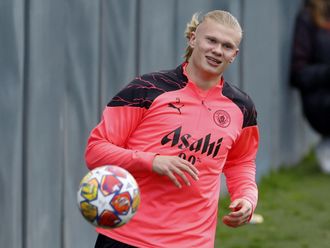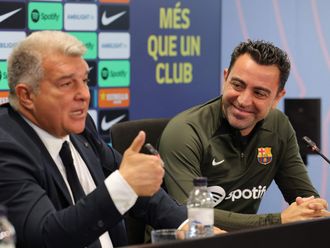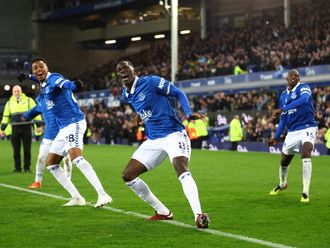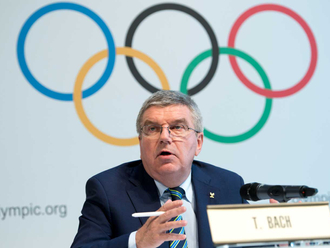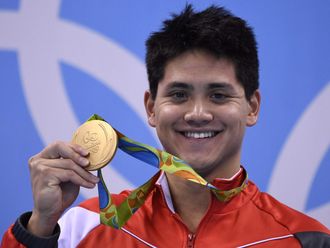London: Back in February, John Terry’s house was burgled while he was on a skiing holiday in France with his family. The thieves got away with tens of thousands of pounds of jewellery and valuables.
Yet perhaps the most noteworthy element of this story was not the burglary itself. It was the fact that Terry was abroad skiing in the middle of the football season.
If ever there were a sign that Chelsea and Terry were “consciously uncoupling”, as the Hollywood marriage counsellors say, then this was it. The divorce will be amicable. The negotiations will be relatively painless. They may even get to share custody of Kurt Zouma.
But nights like Monday made it clear that it is probably for the best in the long run.
With the Premier League title already sealed and Antonio Conte in a sentimental mood, Terry started his first league game since September. Yet even though he scored, something felt not quite right. Perhaps it is because Terry in his prime was never that sort of player. With him, it was always business.
The wizened warrior, the elder statesman, the club ambassador: all these parts suited him perfectly well, as long as he was in the side on merit.
But Terry as ornament, empty vassal, like a Ryder Cup captain without the buggy? No, no, no. This would not do at all.
You can bet all the euros in Conte’s pocket that had the title still been on the line, Terry would have been sitting on the sidelines in his branded tracksuit.
As it was, the ease with which a partially interested Watford team managed to burgle three goals out of Terry’s back line was a reminder that this is a Chelsea side who have won the title despite him, not because of him.
It was a match that had the feel of a testimonial, and to be brutally frank, that is Terry’s level these days.
Even in this second-string side, it was striking how much of an anachronism he seemed: flanked by 22-year-olds in Nathan Ake to his left and Zouma to his right, a strangely ill-fitting part in a Chelsea machine built on rapid vertical movement.
There was a moment in the second half when Terry put in a strong challenge on M’Baye Niang, sending him tumbling to the ground. A proper, old-school Terry challenge. Except the ball was nowhere to be seen.
Daryl Janmaat had already gathered it up and slalomed through the Chelsea deficit to make it 3-2
. And that, in a nutshell, is John Terry in 2017: a man still playing a game that has long since left him behind.
Where might he go next?
With more elite teams deploying a three-man defence as a springboard for rapid counter-attacks, it is hard to imagine many Premier League sides where Terry would be a natural fit.
Most Chinese Super League sides would rather fill their foreign quota with an exciting, shirt-selling attacker than an ageing defender with a reputation for racial insensitivity.
It may well be that the coaching textbooks Terry has been photographing on his Instagram account will be required more imminently than he was bargaining for.
Of course, this being Terry, there was still time for a moment of grace.
His first-half goal, a sliced finish with his back on the turf, made it the 17th consecutive Premier League season in which he has scored. Only Frank Lampard, Ryan Giggs and Paul Scholes can beat that.
Seconds later, he headed the ball back towards his own goal, fatally failing to spot Etienne Capoue lurking behind him. It was the sort of mistake Terry used to make once a season. Here, it had taken him less than half an hour.
Terry grimaced.
Sensing the wounded pride of their king, the Chelsea fans rallied. “John Terry, he’s won more than you,” they sang.
And although they meant well, you suspect Terry would have hated every word. He could take your acclaim, he could take your abuse. He could handle your love and he could handle your hate.
But one thing he never wanted was your sympathy.
— The Telegraph Group Ltd, London 2017


